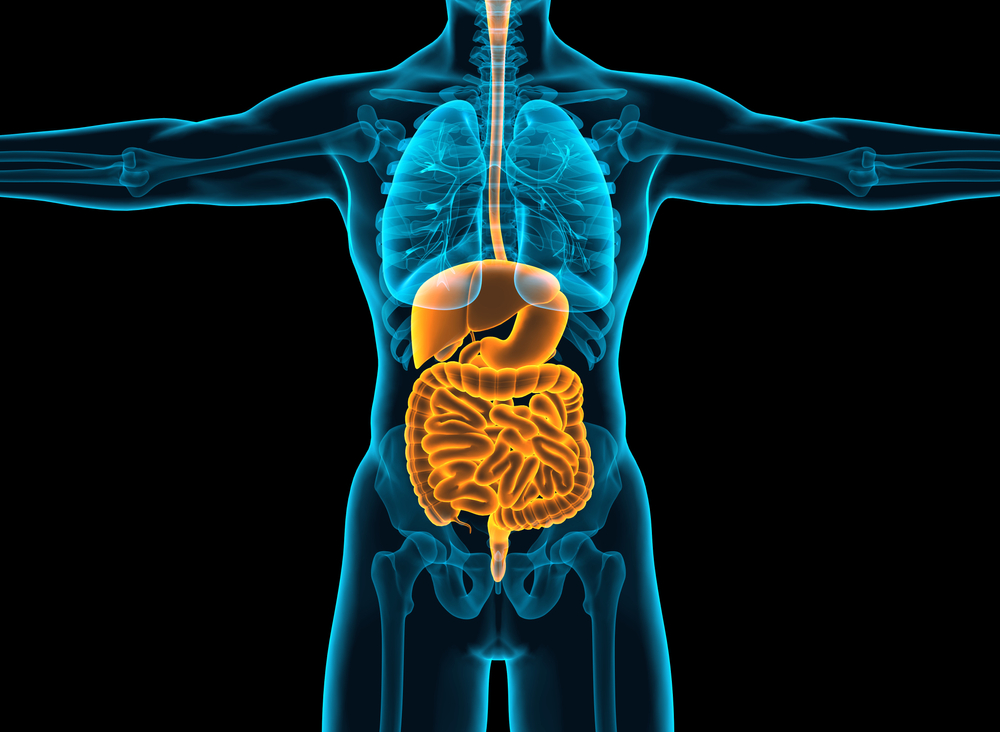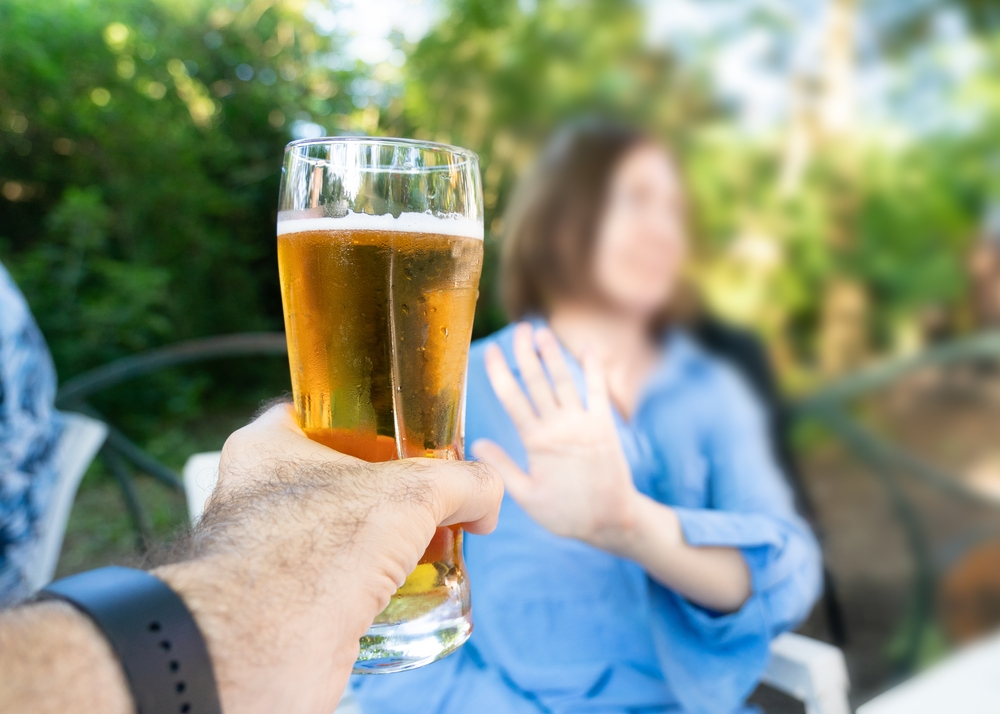


Excessive alcohol use can trigger a vicious cycle that hurts your gut, liver, and mind. When you drink heavily, alcohol irritates and inflames the delicate lining of your digestive tract. This inflammation of the stomach lining (alcoholic gastritis) causes pain, heartburn, nausea, and sometimes vomiting after drinking.
Over time, the lining can actually begin to erode, leading to ulcers. Inflammation doesn’t stop at the stomach: alcohol travels into the small intestine, where it damages cells and disrupts digestion.
The gut is a powerhouse that supports digestion, immunity, and even brain function. But alcohol throws this entire system off balance. When you drink heavily or over time, alcohol damages the stomach lining and wipes out the beneficial bacteria that protects your digestive tract.
Harmful microbes take over, toxins leak into the bloodstream, and inflammation spreads through the gut, liver, and brain. This inflammatory cycle disrupts mood, weakens the immune system, and can intensify cravings for alcohol.
Studies show that gut microbiota changes can influence how much a person drinks, highlighting the powerful link between the gut and brain.

Drinking too much alcohol quickly or repeatedly can inflame your stomach lining. This causes a burning pain or ache in the upper abdomen, similar to heartburn or an ulcer. You may feel nauseous or even vomit. Some people experience a “bloated” feeling or loss of appetite. Over time, chronic gastritis can lead to anemia, fatigue, and weakness because the inflamed stomach absorbs nutrients poorly.
Continued irritation can evolve into ulcers – open sores in the stomach or duodenum. If an ulcer erodes a blood vessel, you might see vomited blood or black, tarry stools. Gastrointestinal bleeding is a medical emergency. Alcohol-induced gastritis is a common precursor, so symptoms like coffee-ground vomit or dark stool after heavy drinking should prompt urgent care.
Acute drinking episodes often trigger immediate gut symptoms. You might feel sick and vomit during or after a binge. Chronic drinkers may suffer persistent stomach cramps or gnawing pain. Alcohol’s irritation can also cause bloating, gas, and indigestion.
These symptoms result from increased stomach acid, slowed gut motility, and inflammation. Over time, painful chronic gastritis can keep you feeling uncomfortably full, hurting your appetite and nutritional intake.
Alcohol disturbs normal bowel function. Some people experience diarrhea (especially after repeated heavy drinking) because alcohol speeds up gut transit and changes fluid absorption. Others get constipation from dehydration and a poor diet on drinking days. Chronic diarrhea is especially dangerous because it worsens nutrient loss.
These symptoms are common signs that the small and large intestines are inflamed and imbalanced from long-term alcohol consumption.
A damaged digestive tract cannot absorb vitamins and minerals effectively. Heavy drinking interferes with the absorption of folate, thiamine (B1), B12, magnesium, zinc, and others. Deficiencies in B vitamins can cause anemia, neuropathy (nerve damage), and brain fog.
For example, chronic gastritis can lead to low iron and folate, causing fatigue. Over time, these deficiencies weaken the immune system, impair healing, and contribute to mood problems and cravings.

Alcohol can open up the intestinal barrier. This “leaky gut” lets bacteria and toxins flood your bloodstream. When these foreign compounds enter circulation, your immune system responds with widespread inflammation.
This can cause a general feeling of malaise and aching, further damaging the gut and liver. Inflammation from a leaky gut also increases the risk of infections and even autoimmune reactions as the immune system is in overdrive.
Leaky gut can impact your mental health as well. When toxins and inflammatory molecules enter the bloodstream, they can alter neurotransmitter production and brain chemistry. This helps explain how leaky gut syndrome contributes to depression, anxiety, and the emotional instability that often accompanies alcohol use disorder.
Although technically not in the stomach or intestines, the pancreas is part of the digestive system that breaks down food. Binge or chronic drinking is a leading cause of pancreatitis (inflammation of the pancreas). Symptoms include severe abdominal pain radiating to the back, nausea, and vomiting.
Pancreatitis reduces digestive enzyme production, causing fatty stools and malnutrition. It is a dangerous condition that can become life-threatening if untreated.
The liver is the body’s detox hub, and it takes a heavy hit in this cycle. It metabolizes most alcohol, but at the cost of generating toxic byproducts (acetaldehyde) and free radicals. Over time, these toxic insults cause fat to accumulate in liver cells (fatty liver), then inflammation (alcoholic hepatitis), and eventually scarring (cirrhosis) – all forms of alcoholic liver disease. In fact, chronic alcohol consumption is one of the top causes of cirrhosis worldwide and a major public health concern.
A key link between the gut and liver is the portal circulation: blood from the gut goes straight to the liver. A healthy liver filters out bacterial toxins, but heavy drinking overwhelms this system. When the gut is leaky, excess endotoxin and microbial products pour into the liver. This triggers the liver’s immune cells (Kupffer cells) to release inflammatory cytokines, which injure liver cells.
Over time, this inflammation causes liver swelling, liver tissue damage, and scar tissue deposition (fibrosis) that can progress to cirrhosis.
Alcohol also skews the gut microbiome in ways that specifically harm the liver. In alcohol use disorder, the populations of beneficial gut bacteria decline while harmful microbes increase.
For example, certain bacteria and yeasts can produce cytolysins or candidalysins (toxic proteins) when overgrown. These toxins travel to the liver and directly kill liver cells, making liver inflammation worse. In other words, a disturbed gut doubles the liver’s workload: the liver must metabolize alcohol itself and filter out extra gut-derived toxins.
In long-term heavy drinkers, these processes dramatically increase the risk of liver disease. Studies have shown that alcohol-induced gut leakiness and dysbiosis accelerate the progression of alcoholic liver disease.
For example, gut-derived endotoxin is a known driver of cirrhosis and alcoholic hepatitis. Once cirrhosis starts, even more inflammation and degeneration follow, which can lead to liver failure. Additionally, chronic alcohol and gut damage impair the digestion of fats, proteins, and nutrients, causing malnutrition that further weakens liver repair.
Emerging research suggests a strong connection between gut health and brain function, often referred to as the gut-brain axis. When the gut microbiota begins to heal and inflammation decreases, the brain receives clearer, healthier signals that can help regulate mood, reduce stress, and rebalance the body’s natural reward pathways. This improved communication may play a key role in reducing alcohol cravings and supporting long-term recovery.

Let’s explore some effective ways to restore gut health:
Introduce healthy bacteria back into your gut. Evidence-based strains include Lactobacillus rhamnosus GG (LGG), Bifidobacterium longum, Lactobacillus acidophilus, and Akkermansia muciniphila. These probiotics strengthen the mucosal lining, produce anti-inflammatory compounds, and compete with harmful microbes.
You can take them as supplements or eat probiotic-rich foods such as yogurt with live cultures, kefir, sauerkraut, kimchi, miso, and fermented vegetables. Clinical studies show probiotics can reduce systemic inflammation, improve gut barrier function, and can even lower alcohol cravings.
Emphasize whole, unprocessed foods that calm the gut and nourish your body. Include plenty of fruits, vegetables, whole grains, nuts, and seeds. Fatty fish (salmon, sardines) and flaxseeds provide omega-3 fatty acids, which have powerful anti-inflammatory effects (and may modestly support mood and brain function).
Foods rich in soluble fiber (oats, barley, legumes) help feed gut-friendly bacteria, boosting short-chain fatty acid production, which heals the lining. Colorful berries and leafy greens are high in antioxidants. Consider bone broth or foods with natural glutamine (chicken, beef, beans) to fuel gut cell repair.
Alcoholism often leads to specific vitamin and mineral deficiencies, and you can supplement as needed, under medical guidance. Essential nutrients include B vitamins (especially thiamine B1, folate, and B12) to restore nerve and brain health, zinc and magnesium for enzyme functions, and vitamin D for immune regulation.
Zinc, in particular, has been shown to preserve intestinal integrity in alcohol injury. Glutamine, an amino acid fuel for gut cells, can be taken as a powder or from high-protein foods to help heal the gut lining. A general multivitamin or targeted B-complex supplement is often recommended early in recovery to correct deficits.
Alcohol is dehydrating and irritates the gut. Drink plenty of water daily to flush toxins and support cellular healing. Warm herbal teas (chamomile, ginger) can soothe the stomach. Low-sugar electrolyte drinks will help if you’re prone to losing minerals from vomiting or diarrhea. Adequate hydration aids nutrient transport and can ease headaches and fatigue that often occur in early recovery.
Do not skip meals. Eating small, balanced meals and snacks every 3 to 4 hours helps stabilize blood sugar and gives your gut a steady supply of nutrients. Include a mix of protein, healthy fat, and fiber at each meal. Skipping meals or fasting can worsen nausea and anxiety, making cravings harder to resist.

Chronic stress and poor sleep themselves damage the gut lining. Practice stress-relief techniques such as gentle exercise (walking, yoga), deep breathing, mindfulness meditation, or counseling.
Aim for 7 to 9 hours of quality sleep per night – sleep is when much gut and liver repair occurs. Consider using a weighted blanket or white noise if anxiety disrupts sleep. Counseling or support groups (for both stress and addiction) can significantly improve outcomes.
A healthy immune system aids gut healing. Besides nutrition, consider moderate exercise and immune-supportive practices. Some patients find supplements like omega-3 fish oil (for its anti-inflammatory effect) or milk thistle (for liver support) helpful, though consult your doctor before starting any nutritional supplements, or herb regimen. Importantly, avoid irritants: cut out caffeine, tobacco, NSAIDs (like ibuprofen), and spicy foods if they upset your stomach.
Each step above addresses part of the gut–brain axis. Though it may feel overwhelming initially, you can start with small changes: drink an extra glass of water, take a probiotic daily, and eat one extra vegetable. Over weeks and months, these habits can help rebuild your digestive system and give you more energy. Every positive change in your gut health makes it slightly easier to resist cravings, because you’re reducing inflammation and stabilizing your mood from the inside out.
Above all, it’s essential to know: you are not alone, and help is available. Breaking free of alcohol addiction usually requires support. If you’ve been struggling to stop drinking, reach out for specialized care.
Facilities like More Than Rehab offer comprehensive treatment for alcohol use disorder. At MTR, medical detoxification, nutritional therapy, and counseling are combined to give your gut and liver a fighting chance to heal while you work on recovery. Our team understands the gut–brain connection and can guide you through a plan tailored specifically to your needs.


